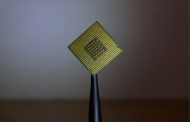From European Parliament News: EU rules for the fast-evolving field of robotics, to settle issues such as compliance with ethical standards and liability for accidents involving driverless cars, should be put forward by the EU Commission, urged the Legal Affairs Committee on Thursday.
Rapporteur Mady Delvaux (S&D, LU) said: “A growing number of areas of our daily lives are increasingly affected by robotics. In order to address this reality and to ensure that robots are and will remain in the service of humans, we urgently need to create a robust European legal framework”. Her report, approved by 17 votes to 2, with 2 abstentions, looks at robotics-related issues such as liability, safety and changes in the labour market.
MEPs stress that EU-wide rules are needed to fully exploit the economic potential of robotics and artificial intelligence and guarantee a standard level of safety and security. The EU needs to take the lead on regulatory standards, so as not to be forced to follow those set by third states, argues the report.
A new European Agency for robotics and a Code of Ethical Conduct
MEPs urge the Commission to consider creating a European agency for robotics and artificial intelligence to supply public authorities with technical, ethical and regulatory expertise.
They also propose a voluntary ethical conduct code to regulate who would be accountable for the social, environmental and human health impacts of robotics and ensure that they operate in accordance with legal, safety and ethical standards.
For example, this code should recommend that robot designers include “kill” switches so that robots can be turned off in emergencies, they add.
Liability rules
MEPs note that harmonised rules are especially urgently needed for self-driving cars. They call for an obligatory insurance scheme and a fund to ensure victims are fully compensated in cases of accidents caused by driverless cars.
In the long-term, the possibility of creating a specific legal status of “electronic persons” for the most sophisticated autonomous robots, so as to clarify responsibility in cases of damage, should also be considered, MEPs say.





